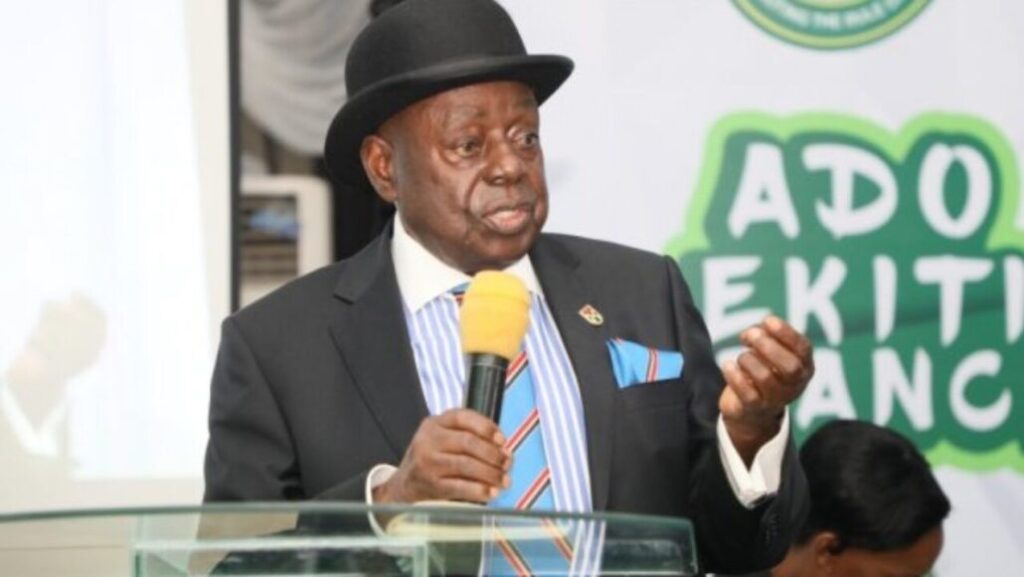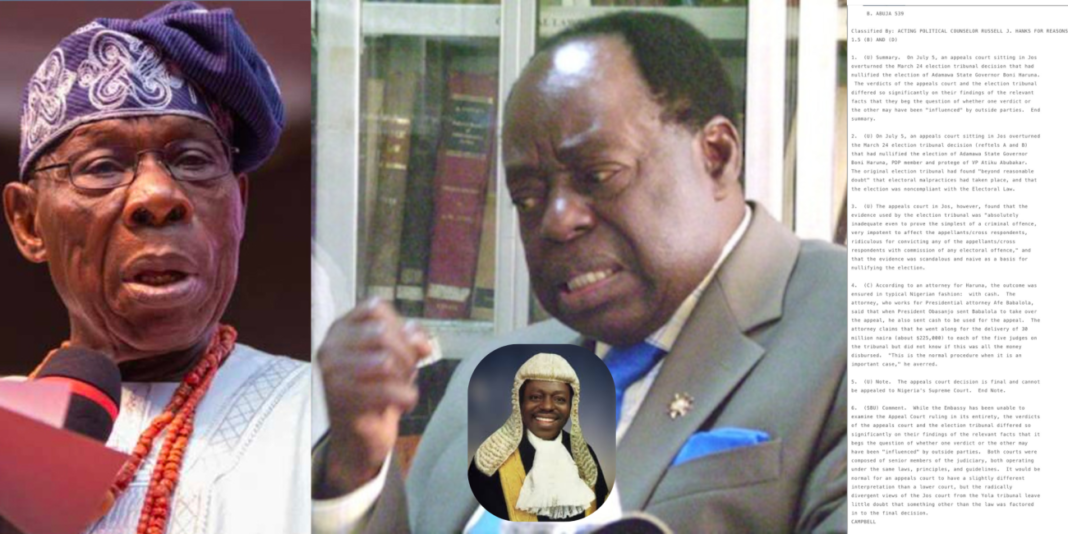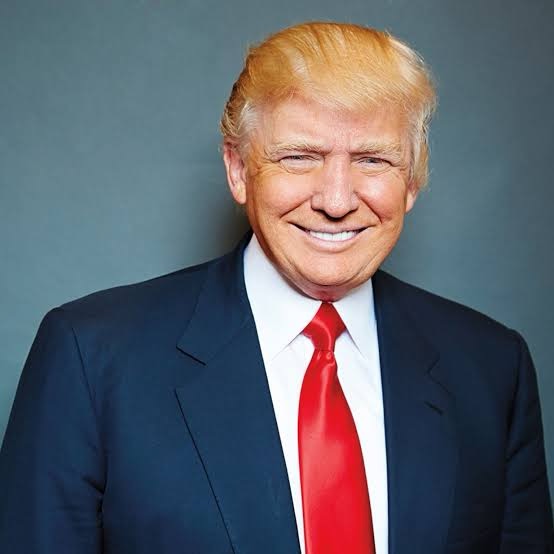A controversial WikiLeaks cable has brought to light shocking revelations about the involvement of prominent Nigerian figures in alleged judicial corruption. According to the cable, legal luminary Afe Babalola and former President Olusegun Obasanjo were involved in a scheme to allegedly bribe judges in Nigeria’s Court of Appeal with N30 million in cash in 2004.
The cable, reportedly sourced from a confidential US embassy communication, claims that Babalola, a well-known lawyer, and Obasanjo, who was president at the time, orchestrated the payment to sway the Court of Appeal’s ruling in a case involving a significant political figure. The court’s decision, which was initially anticipated to favor the opposing party, was said to have been reversed after the alleged payment, raising concerns over the integrity of the judicial system.

Sources familiar with the case and the WikiLeaks cable allege that the funds were delivered in cash, with the judges involved receiving direct payments. While the names of the specific judges were not disclosed in the cable, the impact of the ruling was felt across the political landscape of Nigeria. The bribery scheme was said to have been masterminded by powerful political forces who sought to maintain their influence in the judicial branch.
The revelations have sparked outrage among Nigerians, with many calling for a thorough investigation into the claims. Legal experts and activists have questioned the credibility of the judiciary, highlighting how such practices may undermine public trust in the rule of law. In response, Afe Babalola and representatives of former President Obasanjo have vehemently denied any involvement in the alleged corruption, insisting that the accusations are unfounded.
The exposure of the alleged bribery plot has added to the growing concerns about judicial corruption in Nigeria, where previous instances of suspected judicial manipulation have surfaced. The public outcry following the WikiLeaks cable has further amplified calls for judicial reforms and greater transparency within the Nigerian legal system.
As investigations continue, the focus now shifts to whether any action will be taken against those accused of manipulating the legal process for political gain. The WikiLeaks cable serves as a reminder of the potential risks posed by powerful individuals who seek to control judicial outcomes for their personal benefit, leaving the Nigerian public demanding justice and accountability.
Let me know if you’d like to make any adjustments or additions.





